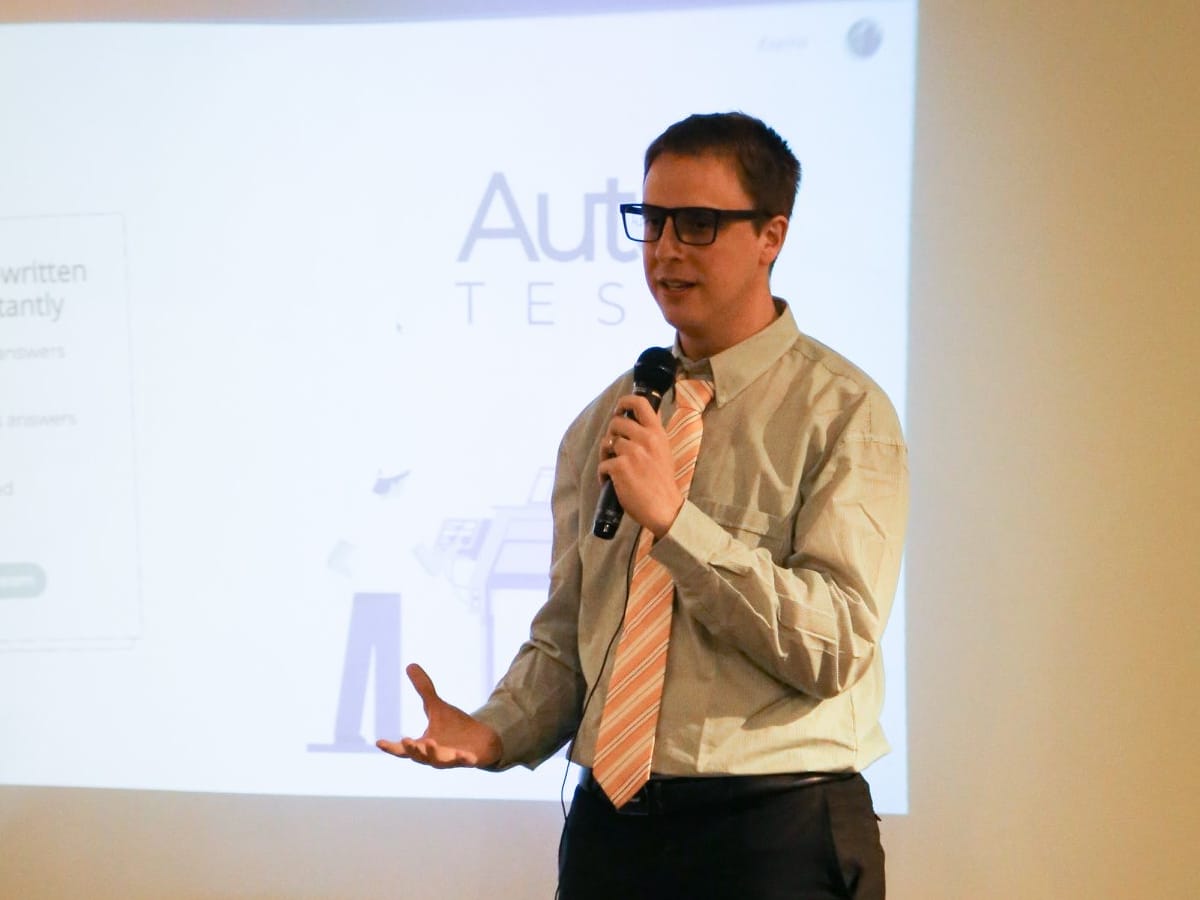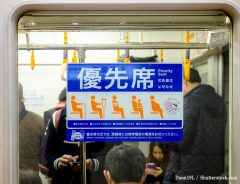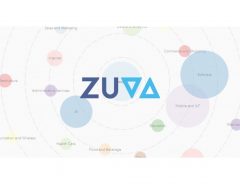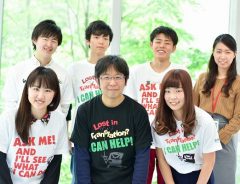
Source: © Odaiba - Photo used with permission
Paulo D’Alberti: the startup founder shaping the future of online education in Japan
- Tags:
- Education / educational technology / Odaiba / online education / online learning / Paulo D'Alberti / startup
Related Article
-

Who Gives Up Their Seat on a Crowded Train?
-

Overseas start-ups look to spring from the blocks post-lockdown
-

Famous Figures of the world and unique experiences at Japan’s wax museum Madame Tussauds
-

Lost in Translation On Your Tokyo Visit? These Student Volunteers Want To Help!
-

Steak Is Becoming A Source of Hope For Victims of Exam Hell
-

To open in 2023, ‘Japan Fish College’ will offer curriculum integrated with the sea


COVID-19, like the unruly troublemaker that haunts every classroom, has thrown education into disarray in 2020. While schools are furtively unshuttering their doors, many still remain closed, taking their classes online.
During the pandemic, online learning has seen an explosive boom. The impact however has been unexpected, felt globally by schools and universities, many of which are laggards yet to fully embrace the digital space. This is true, especially in Japan. NHK reports that a mere 5% of schools conducted online classes as COVID-19 spiked in April. 100%, on the other hand, relied on textbook homework tasks.
Yet education is shifting inevitably towards the digital space, now more rapidly than ever before. The World Economic Forum predicts that even after COVID-19 is long gone, the classroom will remain a hybrid of physical and digital forevermore. Shying away from the online space is no longer an option; all teachers and students must be prepared to educate and be educated digitally.
This paradigm shift brings with it new challenges. Namely, how to ensure the same level of engagement and interactivity that students and teachers develop in the classroom, but in the cold and distant digital lecture halls of Zoom? After all, education is not just about learning. It is an experience, of which social interaction and connection plays a large part.
Enter Odaiba, an online learning startup seeking to solve this challenge by developing a “collaborative learning platform that will bring the fun bits of school to digital study. We sat down with founder, and winner of this year’s Japan Hackathon, Paulo D’Alberti to find out what motivated Odaiba’s mission, how it plans to achieve it and what the future of learning looks like in Japan.
So Paulo, can you give me a quick jikoshōkai, or self-introduction?
“My name is Paulo D’Alberti, I’m a half Italian, half German global citizen working in Japan as a junior backend developer.”
Paulo D’Alberti. | Photo used with permission from Odaiba.
Paulo has a background as a teacher and soft skill trainer in Europe, as well as in marketing, sales admin and procurement for large Japanese organizations. His latest personal project Odaiba is close to his heart and most likely the hearts of teachers and parents across Japan.
So what is ODAIBA?
“Odaiba is our online learning platform that aims to put the fun bits of school into online learning.”
Most online learning currently focuses on content: video lectures, short quizzes or assignments, online materials, and sometimes static student forums. This is just one part of learning, however.
Odaiba user interface showing students working together on a worksheet. | Photo used with permission from Odaiba.
“Odaiba focuses on bringing the social aspect of education to students. It enables groups of students to work together on the same task, each student taking turns to fill in a worksheet while their peers support them in real-time”.
“The class teacher can observe and interact with the students if necessary. The platform also allows teachers to set group study time and break times so students can interact socially. That, in brief, is Odaiba”.
So why did you decide to call the platform Odaiba?
“Well Odaiba is a famous artificial island in Tokyo with a lot of sights and attractions. So people will already be familiar and intrigued by the name.”
“But we chose Odaiba because of the spelling in Kanji: 大 (oo), 題 (dai), 場 (ba) - the place of big homework”.
The Odaiba logo. | © Photo used with permission from Odaiba.
That’s a very well-conceived name. So, what inspired you to start working on the idea for Odaiba?
“My friend in Italy was venting to me about the way her son’s school responded to the COVID-19 lockdown. They just sent him home with mountains of homework and didn’t even bother to provide any online lectures. Her son normally loves school, but as the lockdown progressed he lost his motivation to do his work. When my friend asked why he said he missed school! That is his friends and the lively classroom environment where he can work with his classmates and have fun while learning. My friend highlighted to me a crucial part of education for kids is socialization”.
Around the time Paulo had this conversation, he’d also been asked to participate in the Japan Hackathon 2020 by a friend. On the fence about going as it meant 52 hours away from his family, hearing about his friends' struggles gave him the inspiration for a really cool project to work on in the hackathon. Paulo decided to join the hackathon and “at that moment, Odaiba was born!”
It certainly seems like the stars aligned on the timing of this venture. Especially since you haven’t been programming for that long right?
“My background spans teaching, marketing, and supply chain. But in 2019 the company I was working for folded. At that point, I decided to challenge a career change.”
Paulo entered Le Wagon, a famous international coding school in Tokyo. The school is renowned for placing an emphasis on entrepreneurship. Paulo underwent 9 weeks of intensive classes, learning everything from how to program with Ruby on Rails, to how to plan, pitch and develop an app as a viable business.
Le Wagon also helped Paulo build a network with fellow students, some of whom joined him in the Japan Hackathon, including a colleague who attended Le Wagon in Singapore.
So, on the subject of Japan Hackathon, congratulations! You took 1st place this year by creating Odaiba. Can you tell us a little more about the event and how far Odaiba has come since then?
“The Japan Hackathon is a 52-hour competition that brings together designers, devs, and project managers to develop software that solves problems in their communities. Because of COVID-19, this year the Hackathon was held remotely so participation was open to anyone across the world”.
“After I had the idea for Odaiba, originally “Socialize Homework”, I gathered a team including classmates from Tokyo and Singapore to enter the Hackathon. We developed a prototype of Odaiba during the competition, which took place in June (2020). We pitched it as a software that would help improve remote learning for both teachers and students by enabling richer social interaction”.
User interface of Odaiba showing teacher and the icons of students | © Photo used with permission from Odaiba.
Paulo also emphasizes Odaiba’s focus on social learning is inspired by a software development technique used to build the app itself: pair programming. This technique involves two programmers working on the same task by taking on and frequently switching between coding and observer roles. The technique is held to improve the accuracy and creativity of programming compared to working alone.
“The judges were impressed by the idea and we took first prize of ¥500,000. The real prize, however, was having created a nascent version of what is now Odaiba”.
Encouraged by the feedback they received from the Hackathon, Paulo and his team have continued to work on Odaiba in their spare time and have almost completed the first fully functional app.
“We invested a lot of effort into ensuring teachers could upload worksheets directly to the app as it’s important that the app be easy to use for them. The next step is testing the app with students and teachers, then another round of development based on their feedback. Then we will take Odaiba to market.
That’s amazing progress (we conducted the interview in July 2020). How have you achieved so much in such a short time?
“It’s because of my team that my idea for Odaiba has been realized. I’m lucky to have such talented colleagues who are passionate about working on Odaiba”.
Paulo also recognizes the importance of diversity in his team’s success. His teammates, based not only in Japan but also in Singapore and Indonesia, work across different time zones and languages. This brings different skills and perspectives to the Odaiba project.
“On that note, I would like to give a shout out to my original team from the Japan Hackathon 2020: Dzakki, Myra, Ann, and Julien."
Paulo and his team winning the Japan Hackathon 2020 | © Photo used with permission from Odaiba.
That’s fantastic! The idea is really worthwhile so it’s great to see you have committed collaborators who can help bring it to life. I want to focus on Japan for a moment though as that’s where you’re initially piloting and wanting to launch the app. What challenges do you face launching this kind of platform in Japan?
“I’m based in Japan and most of my teamwork or have experience working in Japan so we’re targeting the Japanese market at first”.
“One of the biggest challenges in Japan, though this applies globally, is that education is a conservative industry. Especially in Japan, change can take a long time to happen. Because Odaiba focuses on collaborative study, it’s different from the kinds of online learning being done by Japanese schools at the moment. This means it will be tough to get buy-in to test or implement Odaiba”.
But you’ve worked in education and in Japanese organizations. Do you have any ideas about how to overcome this challenge?
“Well as with any change you want to instigate in Japan, be it bringing a new product to market or proposing an idea, having group support is essential”.
Paulo believes to get schools to use Odaiba support from parents, teachers themselves and school leaders is essential. Taking time to build a movement of people who can support using Odaiba will speed up its adoption.
Strength in numbers is definitely essential in Japan. So what are your next steps, and what would really help you right now in the early stages of your startup?
“The next steps are getting feedback on Odaiba from educators. An education consultant in Kyoto and my teacher friend in the Czech where I used to live are interested in testing the platform”.
“What would really help us now is some early investment in Odaiba. I and my team are working on this in our spare time. We’re really passionate and I know we can make it work. But if we had investment then we could hire staff to help turbocharge the development of Odaiba”.
“Of course, the more feedback we can get the better as it will help us improve Odaiba and ultimately get more users. Once people are using the app then it will be easier to get interest from venture capital”.
If you’re inspired by Paulo’s mission and are an educator who would like to help test out Odaiba, you can connect with the team through their website contact page
Many industries have been forced to innovate in response to the tragic spread of COVID-19, not least of all education. As more and more schools and universities rush to take their classes online it’s clear that education has changed forever. The upside to this is that global access to quality online learning has and will continue to increase.
Yet, myriad challenges remain for digital education to reach the same standard as high-quality classroom learning. Amongst these, the need for a more social, intimate experience identified by Paulo is a high priority, especially for younger children who rely on school as a quintessential socialization experience.
However, with second waves of the coronavirus already flooding countries around the world including Japan, time is of the essence. It is innovations like Odaiba that will enable education to rise above the flood and thrive in the A.C. / “After Corona” era.